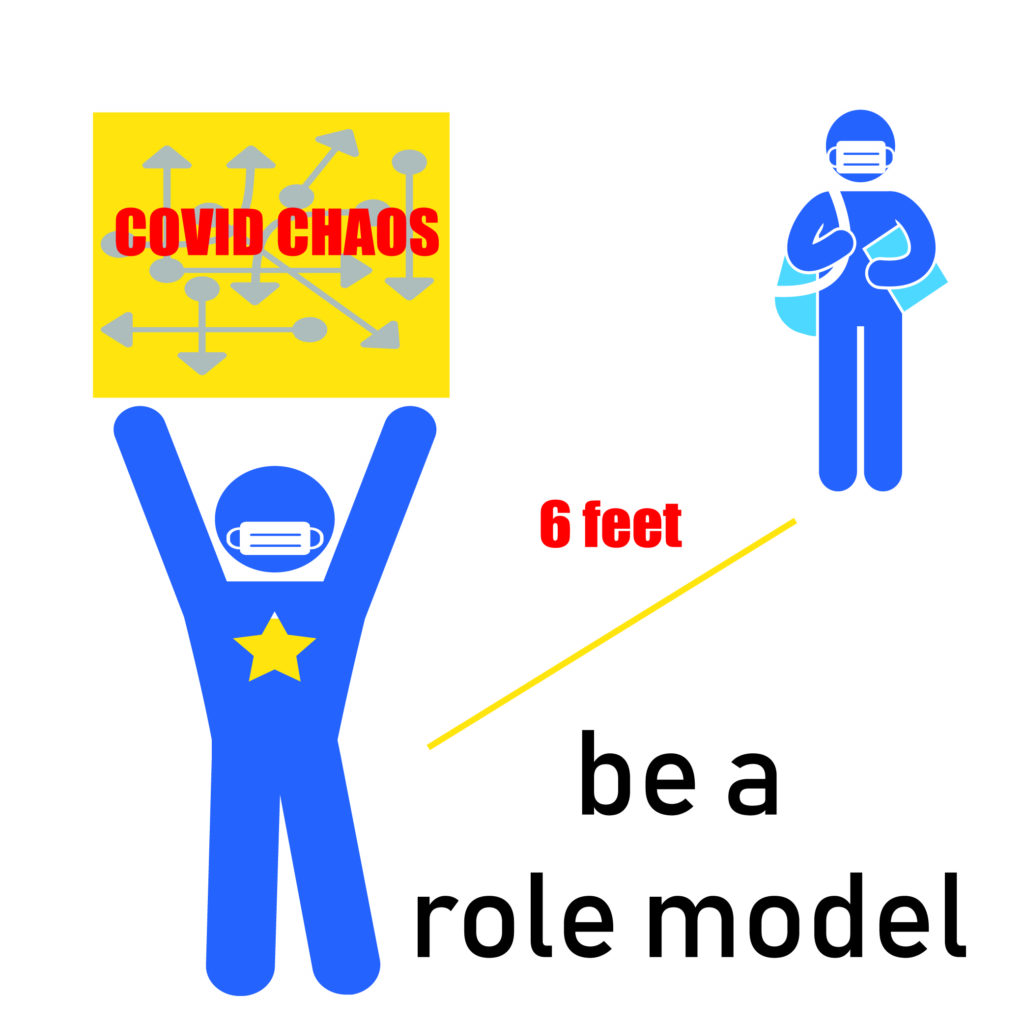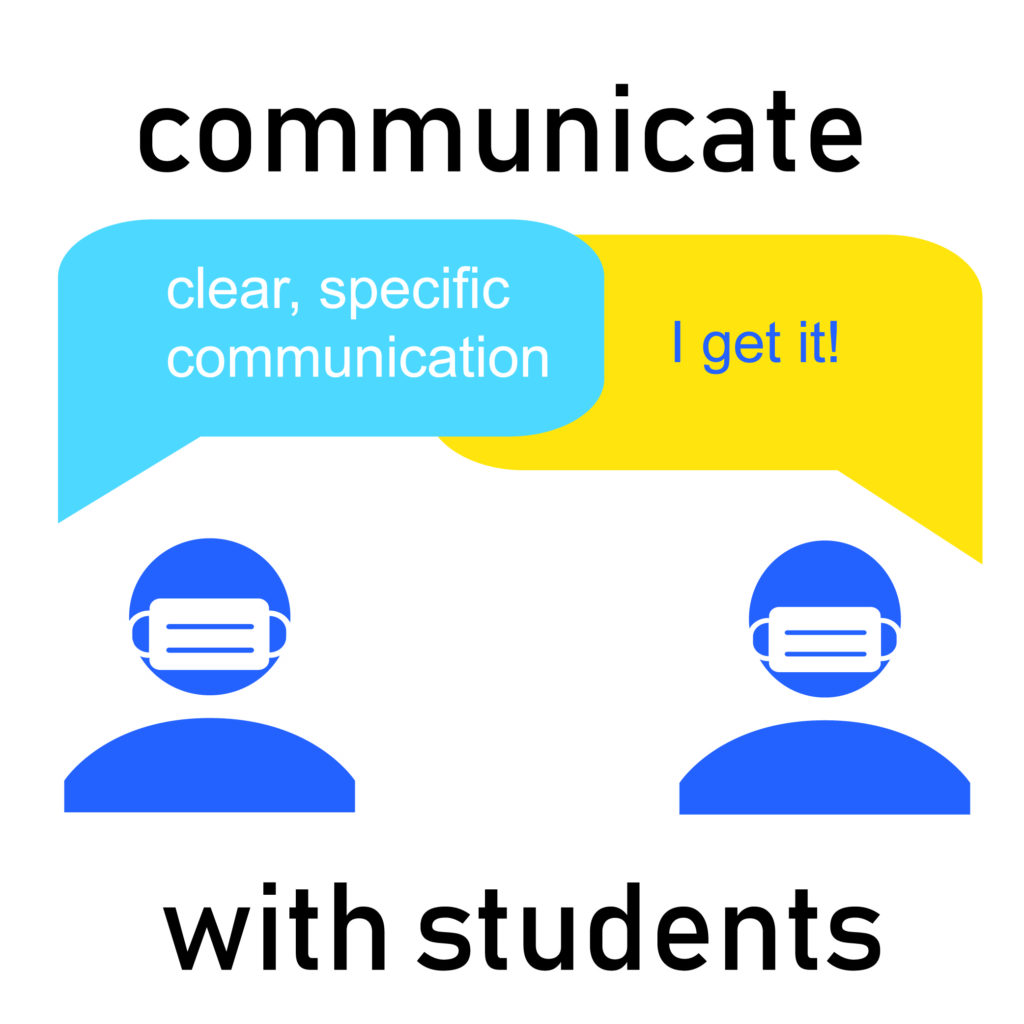As we finalize preparations for a semester unlike any we have ever experienced, we want to highlight five strategies to consider for your classes to help our students succeed. For some, these strategies may be approaches you have already been implementing. For others, these strategies may be a new way of thinking about how you interact with students. The strength of the strategies is their interdependent nature; together, they reinforce a Culture of Care that will help our students thrive and reduce some tensions with our students. The strategies reinforce that we are all in this together. We hope you find these suggestions helpful.
As a bit of background, last May, Faculty Senate surveyed students about their experiences as learners during the pandemic. Students’ experiences, both positive and negative, hinged on two primary things: communication and ability to focus. Most positive experiences related to faculty who frequently communicated, most negative experiences related to faculty who did not communicate regularly, did not answer questions or did not communicate timely feedback. Most barriers students reported related to their inability to focus, whether due to technology, their home environment, or lack of course structure that promoted engaged learning.
As we head into another semester of crisis-based teaching, we can assume that students will again be experiencing a variety of challenges with attention, focus, stress, and anxiety. As faculty and academic leaders, we will be experiencing many of the same challenges and uncertainties. The strategies we suggest below are a few steps we can take to support student success, manage student expectations, and help mitigate student and faculty frustration with this less-than-ideal learning context.

- Be a role model. Students will be looking to others for cues to handle being a college student during a pandemic. Many will look to their classmates and to their professors to determine their behavior. Instead of the pandemic being the elephant in the room, go ahead and discuss it with your students. Have a conversation about norms that include things like masks, remaining flexible while upholding standards, managing stress, and tips for staying focused.

2. Communicate with students regularly, precisely, and directly.

3. Set a schedule or a routine for teaching. Consistency helps students know what to expect – Monday morning announcements, assignments due a particular day and time, and grading and feedback completed by a certain number of days. Many students are goal-oriented. They enrolled in the course to attain a specific goal. Students appreciate organization and clearly defined assignments. Show them how your course will help them reach their goals – even the ones they do not know they have, yet.

4. Build-in time for community. We will not be able to do some of the things we often do to build and sustain a sense of community. Be creative and find ways that suit you and your students. The most effective adult educators may be unwitting neuroscientists who use their interpersonal skills to tailor enriched learning environments. Our brains learn through shared experiences. Throughout the life span, we all need others who show interest in us, help us feel safe, and encourage our understanding of the world. Brains grow best in this context of interactive discovery and through co-creation of stories that shape and support memories of what we are learning. (Cozolino & Sprokay 2013)

5. Let students know your reasoning or strategy behind various aspects of the class. Students need to see a reason for learning something new. Helping students see how they can apply their learning to their lives, employment, and other courses, helps them see the relevance of what you are asking them to do. “Tell me, and I will forget. Show me, and I may remember. Involve me, and I will understand.” – Confucius, 450 B.C.

